Japan has a long and rich history in the mystery genre, stretching back in particular to the inimitable Edogawa Rampo. I read a few modern classics and although they are not all hits — I was not a fan of Newcomer, for instance — these four I think deserve individual recognition and juxtaposition.
Four magical schools: Vita Nostra, A College of Magics, Poppy War, Red Sister
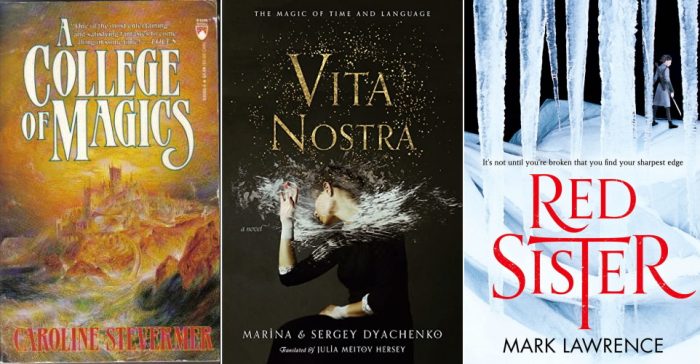
I admit it freely and without shame: I love magical schools. Hogwarts may be the best known, but it’s not the first, nor did it exhaust the theme. That said, such an institution is no guarantee of a good story. Having realized that over two years I’d read four books where a girl attends and learns the mysteries of a magical school, I thought I’d compare.
The Gone World (Tom Sweterlitsch); Recursion (Blake Crouch); The Light Brigade (Kameron Hurley)
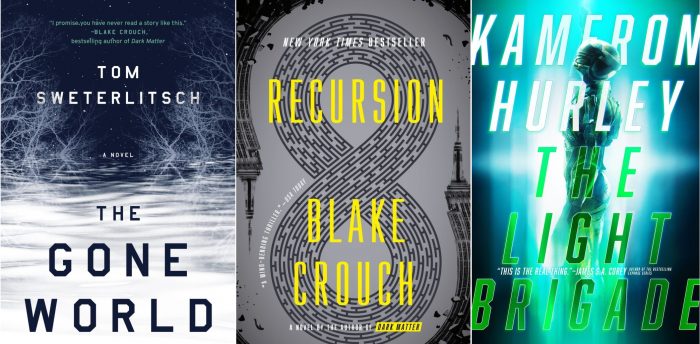
I’ve found that when it comes to science fiction, I have a soft spot for time travel. Although the concept is, of course, fundamentally hokey, I enjoy a clever take on it that subverts your expectations about what the causes or consequences of it could be. These three novels, all released in the last two years, achieve that with varying levels of success — but still have trouble tying up every loose end, which really is the duty undertaken by a novelist undertaking an intricately plotted mind-bender.
I read them in the order listed, and of the three, I think The Gone World is the best of them, with Recursion a close second, and The Light Brigade trailing rather far behind them. I’ll try to avoid major spoilers, but part of the trouble of each is its ending, so I must speak in general terms about that.
Read moreThe Night Land (William Hope Hodgson, 1912)
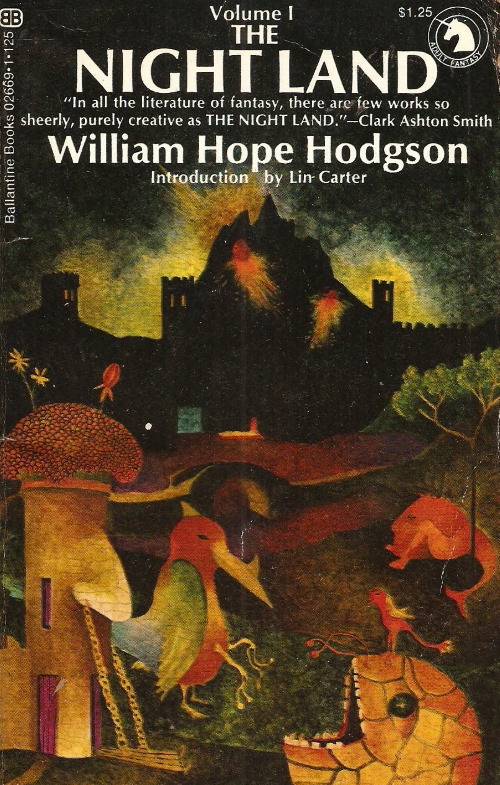
The Night Land is an astonishingly original, imaginative, and bizarre piece of fiction — one of the most memorable books I’ve ever read. And yet, so powerful are its idiosyncrasies that I would hesitate to recommend it to anyone.
Hodgson was among the progenitors of what was called for some time “Weird fiction,” an ur-genre which translated to modern parlance comprises horror, science fiction, fantasy, and others not common at the time, though with serious literary pretensions, to differentiate it from the lurid and numerous stories and novellas appearing in pulp magazines.
He is best known today for a few of his stories of nautical horror (“The Voice in the Dark” and “The Derelict” for instance) and the genre-flouting The House on the Borderlands, whose divagations in deep time and space place it in a lonely hinterland halfway between supernatural horror and a long-form narrative of a DMT episode.
The Night Land inhabits a similarly unusual conceptual Venn diagram: A three-way combination of historical epic, hard sci-fi, and travel diary. The final product is more than the sum of its parts, and deserves to be numbered among the founding documents of science fiction — yet Hodgson’s styling and narrative choices are so frustrating that I sometimes wished I could imitate the protagonist and project my own soul forward in time so as to escape his unceasing exposition.
The book begins with a framing story of the protagonist, who remains nameless throughout the hundreds of pages. He is a strong young man of the 17th century who falls in love with a woman who, he finds, experiences eerily similar dreams of a strange world where it is always night. Soon the narrator finds himself in that world, laboriously explaining the apparent coexistence of his soul and mind in both worlds with the passion of one describing a religious experience.
Read moreThe Rose and the Key (Joseph Sheridan Le Fanu , 1871)
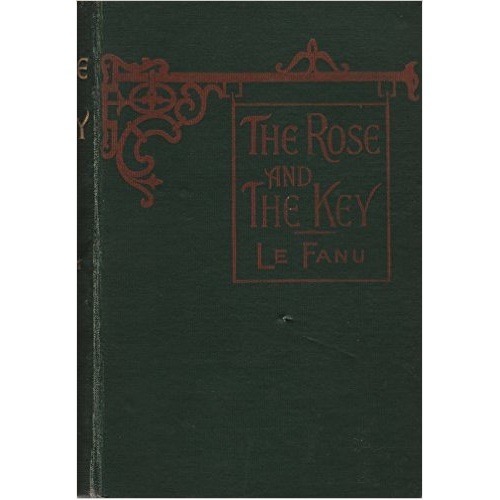
The name Joseph Sheridan Le Fanu is one that, today, hardly produces even a twinkling of recognition in the most word-worn eye. The author was, however, quite popular at the time he was most actively writing – the 3rd quarter of the 19th century – and he was, in particular, well known for his gothic romances. The genre was summed up fairly adequately by a friend of Vonnegut’s: “a girl takes a job in an old house and gets the pants scared off her” – but within that general framework there is much room for variation, as The Rose and the Key shows.
Uncle Silas is the most lauded of his books along these lines (though Carmilla gets love too) , and perhaps rightly so: of his novels I’ve read, Wylder’s Hand is entertaining but let down by unsatisfying villainy, and The Rose and the Key is, while similar to Uncle Silas in some ways, very different in tone. It is, however, a very entertaining frog-in-the-pot experience, effectively hiding the machinations and malice that mark the antagonists of gothic romances from the eye of both the reader and the main character.
Selected entries from Ambrose Bierce’s “Write It Right”
Ambrose Bierce was a good writer, but perhaps more important to him than the ultimate perceived quality of his writing was the pride he took in what he would call its precision. This quality he attempted to promote with a short usage volume entitled “Write It Right: A Little Blacklist of Literary Faults.”
Precision, he writes in the introduction, “is attained by choice of the word that accurately and adequately expresses what the writer has in mind, and by exclusion of that which either denotes or connotes something else. As Quintilian puts it, the writer should write so that his reader not only may, but must, understand.”
Thus, “capacity” should not be used when “ability” is meant, nor “continual” for “continuous,” and so on. The goal is not just successful communication, for which purpose even nonsense words will serve (and often do), but removing any possibility of misconstrual. It is worth noting that it is strictly for “serious discourse” such as news writing and letters that he advises, not poetry or other creative prose, in which creative or ambiguous usage is not discouraged (here, at least).
Worm (Wildbow, 2013)

If you’d told me a year or two ago that I would in 2014 be deeply engrossed in a web-published superhero serial longer than the entire Game of Thrones series to date — I probably would have admitted that it was a possibility, and asked where I might find such a work before that distant, fated date.
To be clear, Worm isn’t exactly a book. It’s a complete “web serial,” published a chapter at a time over a period of about two and a half years by a man writing as Wildbow (alias John McCrae). It’s free to read, but was created under a donation system. You can start here, but you may want to wait until the author rereleases it in a more portable form. Personally, I put a complete epub version on my ereader, though the length (just south of 10,000 pages) caused it to seize up more than once.
The story, and bear with me for a moment here, concerns a teenaged girl, Taylor, who has received superpowers in a world roughly analogous to our own, except that people started spontaneously getting powers about 30 years ago. Meanwhile she is being brutally bullied at school and cities are routinely being attacked and demolished by mysterious and unstoppable monsters that also appeared recently, and her power — allowing her to sense and control bugs in her general area — doesn’t seem to be much of a help in either case. The next 1.65 million words follow her as she navigates a carefully-woven world of heroes, villains, conspiracies, friends, and all the rest.
The Luminaries (Eleanor Catton, 2013)
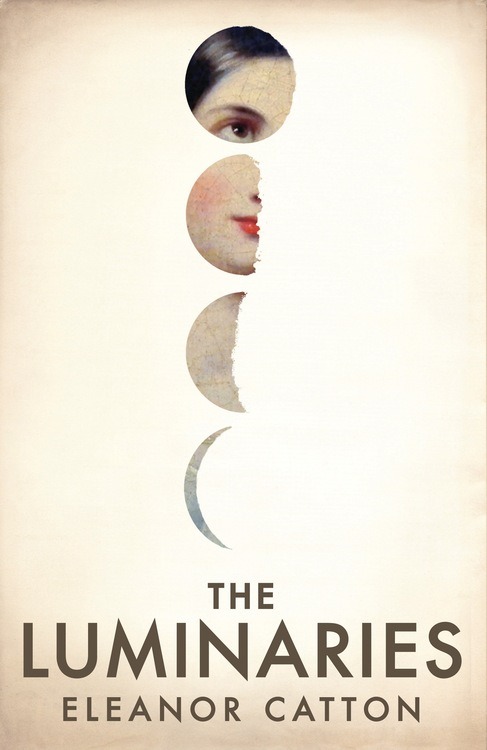
Upon its release, The Luminaries was the subject of praise so effusive and hyperbolic that I wondered at first whether it would be the kind of book so impenetrable, conceptual, or self-serious that only a critic could recommend it. That is not, thankfully, the case, but I think that in their rush to congratulate an incredibly talented young author on a serious literary accomplishment, these critics decided to kindly play down the book’s weaknesses while expanding upon its (considerable) strengths. Ultimately the contrivance that lends the book such grandeur causes the narrative to implode – but it sure looks good doing it.
Wylder’s Hand (J. Sheridan Le Fanu, 1864)
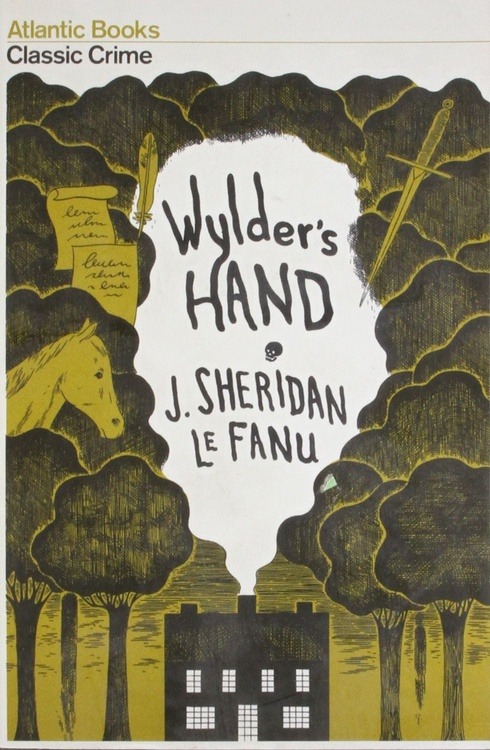
This pastoral mystery is one of the less-read works of the prolific and (then) popular Joseph Sheridan Le Fanu. In the true Le Fanu style, there is an abundance of natural beauty, a pervasive sense of foreboding, and a deep mystery with an air of the supernatural.
Charles de Cresseron, our narrator, is visiting the town in which he grew up to advise on the estate issues of an old acquaintance, and shortly becomes peripherally involved with mysterious happenings surrounding the intertwined and feuding families of the Lakes, the Wylders, and the Brandons. It’s a fun and interesting book, yet with much to criticize.
The Twelve Caesars (Suetonius, 121 AD)
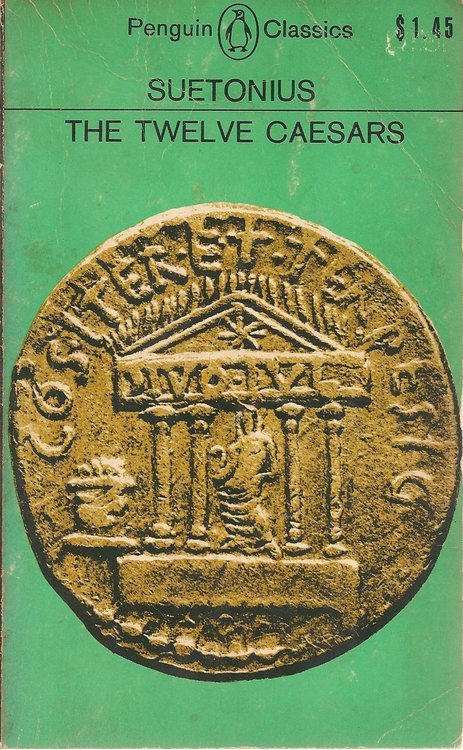
Creasy wrote in his Battles that the obscure machinations of warring east Asia “appear before us through the twilight of primaeval history, dim and indistinct, but massive and majestic, like mountains in the early dawn.” So one would expect the lives of such rulers as the Caesars to exhibit likewise such mythical prominence. But the stories provided by Suetonius, while they must be read with a skeptical eye now and then, feel too minutely detailed, too personal and arbitrary, to be anything but truth. It’s a mountain of anecdote and hearsay, so as history it is somewhat unreliable, but it’s as vivid a collection of character portraits as has ever been assembled.

